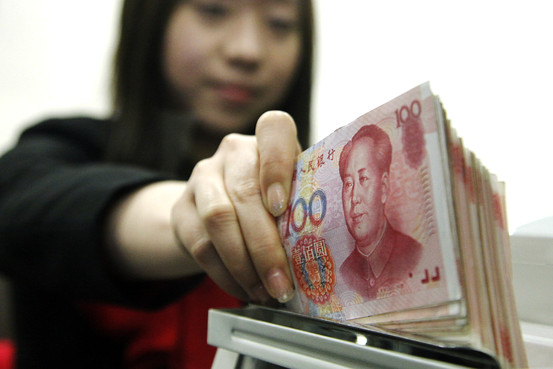
WSJ story noting that "China government will expand a trial program for settling trade deals in yuan to most of the country . . . in an effort to accelerate the internationalization of the Chinese currency after a slow start."
The program started just last July, replacing the long-held norm of denominating trade deals using dollars or other foreign currencies. Until now, only Shanghai and Guangdong-province companies could settle in yuan and only with companies based in Hong Kong, Macau and a few foreign nations. Now the program grows to 20 provinces and major cities.
The goal?
... to gradually make its currency more important internationally, and reduce is reliance on the dollar, which [Chinese officials] have said leads to outsize impact from U.S. economic policy on China and other countries.
The fear is natural enough: ". . . U.S. deficits could lead to inflation that weakens the value of the dollar."
This shift will be slow, because as China proceeds, it moves into an undiscovered territory. But it's a good thing and an inevitable shift. Frankly, we need China to make the dollar less relevant as a global reserve currency. It won't stop being one--ever. But it should not dominate as it has in the past, because that reality allows us too much freedom for fiscal irresponsibility.
As I have said here many times, I would like a future global economy where the euro and the yuan (or some "asia" that includes the yuan) can, in combination, overshadow the dollar and force its corrections in value. This is the next, most natural iteration of the global economy, and however China moves itself and us collectively down that path, we must welcome the evolution, as unsettling as it may seem to us in the here-and-now.
Do not fall into the fallacy of thinking this shift only benefits China and only penalizes us. The discipline we gain is much needed, and China will find itself ever more constrained by this new financial connectivity.